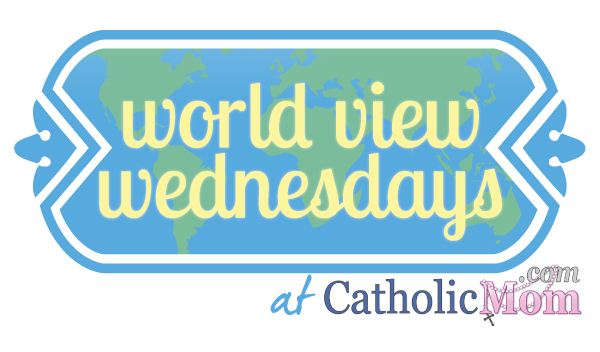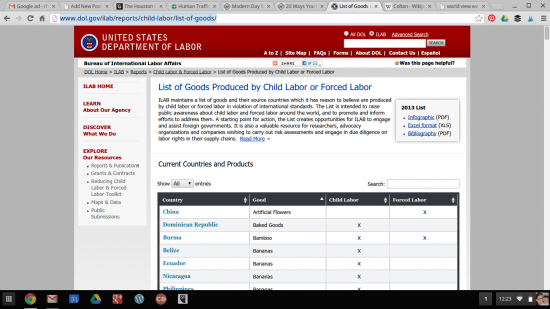"Recent years have seen increased concern about the stewardship of natural resources, ethical treatment of animals, and ensuring that farmers receive fair prices for their work. As a result, certifications and labels exist to inform customers whether seafood is sustainably caught, livestock is pasture-fed, chickens are free range, coffee beans are “fair trade,” diamonds are conflict-free, I can go on and on. And yet those “seals-of-approval” while fostering increased transparency and driving consumers to reward companies that engage in good corporate citizenship, they all seem to assume that the hands that pull the net, that the hands that pick the crops are not enslaved. We know that assumption is non-operative."
Luis CdeBaca, Ambassador-at-Large, Office to Monitor and Combat Trafficking in PersonsStatement Before the Tom Lantos Human Rights Commission, Washington, DC, July 24, 2014
At the same time, we can raise awareness, starting first with our own. This chart on the Department of Labor website lists goods produced by child labor and forced labor, by product and by country:
The results startled me. Bananas? Coffee? Sugar? Cocoa? Coltan (tantalite), a metallic ore used in electronic devices?
Given this list, it's no surprise that the website Slavery Footprint estimates that I unknowingly have 43 slaves working for me. Forty-three!
I had to check out the banana companies right away. Casa Ortiz goes through a lot of bananas in the course of a week. Chiquita and Dole both had statements on their sites regarding human trafficking; I could not find anything for Del Monte. Of course, there's no knowing how well these companies follow through on their corporate policies at the ground level, and the problem still exists. But at least they claim to be doing something about it.
I am finding that knowing the truth is an important step toward being proactive in fighting human trafficking. Our bishops have more information here at the USCCB website. The State Department suggests 20 more ways to help. And donations can be made to Catholic Relief Services, which works to bring Catholic solutions to the problem of human trafficking.
Above all, pray. Our Lady, pray for us. St. Peter Claver, patron of those in slavery, pray for us.
Copyright 2014, Rhonda Ortiz
About the Author

Guest
We welcome guest contributors who graciously volunteer their writing for our readers. Please support our guest writers by visiting their sites, purchasing their work, and leaving comments to thank them for sharing their gifts here on CatholicMom.com. To inquire about serving as a guest contributor, contact editor@CatholicMom.com.




.png?width=1806&height=731&name=CatholicMom_hcfm_logo1_pos_871c_2728c%20(002).png)
Comments